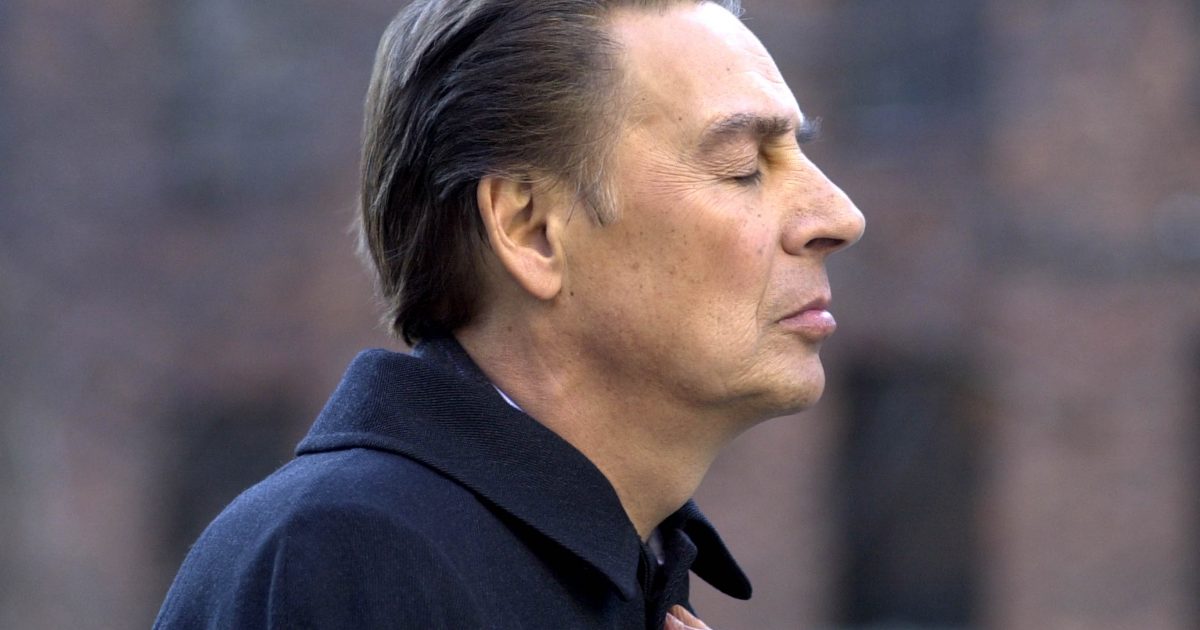A Real-Life Father Figure
- Law & Order star Jerry Orbach, also known as the disciplinary father in 1987’s Dirty Dancing, died 17 years ago of prostate cancer at the age of 69.
- Orbach was diagnosed with the disease in 1994, just two years into his run as NYPD homicide detective Lennie Briscoe on Law & Order.
- Prostate cancer is typically slow-growing. Screening is simple and consists of a prostate-specific antigen (PSA) blood test and a digital rectal exam to feel the prostate gland.
Orbach passed at Memorial Sloan Kettering Cancer Center in Manhattan and was survived by his wife Elaine Cancilla Orbach and his two children, Chris Orbach and Anthony Nicholas Orbach.
Read MoreBronx-born Orbachwho was also a singerhad quite the illustrious career on Broadway, starring in countless productions.
Though he was born in New York, the family moved to Chicago when he was young. Orbach studied drama at Northwestern University but didn’t finish his degree. He headed back to New York and immediately started working on Broadway, while studying with theatre greats such as Lee Strasberg. On Broadway, Orbach starred in hit musicals including Carnival, Promises, Promises (for which he won a Tony Award), Chicago and 42nd Street.
A Prostate Cancer Diagnosis
In January 1994, doctors diagnosed Orbach with prostate cancer. He was two years into his job on Law & Order.
It wasn’t until 2004 that the actor announced a month before his death that he had been diagnosed with the disease.
Orbach’s agent Robert Malcolm spoke to Fox News after his passing.
“He was diagnosed a long time ago. Ten years ago,” Malcolm said. “He has been fighting an incredible fight for the last 10 years, and most people did not know, and he worked.”
Related: Metastatic Prostate Cancer Treatment is Improving
What to Know About Prostate Cancer
Prostate cancer is typically slow-growing, therefore when it’s caught early, the prognosis is usually favorable.
A change in urinary habits could be an indicator of prostate cancer, but it could also be due to a handful of other issues.
There is no one clear-cut sign that suggests prostate cancer. "Prostate cancer is a very odd disease in that it doesn't have a particular symptom," explains Dr. Edwin Posadas, director of translational oncology and the medical director of the Urologic Oncology Program at Cedars-Sinai, to SurvivorNet.
There’s no definitive symptoms of prostate cancer, but there are clues
Yet there can be changes surrounding urinary function that might be a clue. Are you urinating too much or too little or are waking up at night to go more than usual? These signs could potentially be cancer, but they also could be a urinary tract infection or even an enlargement of the prostate gland (which is not cancer).
During your regular annual exam, ask about your risk for developing the disease, report any unusual urinary or sexual issues and find out whether you should be tested.
Guidelines for Prostate Cancer Screening
The guidelines for screening depend largely on your risk for the diseaseand that's based on several factors including family history, genetics, age, and race.
Screening is simple and consists of a prostate-specific antigen (PSA) blood test and a digital rectal exam to feel the prostate gland. "It's slightly uncomfortable but painless, and takes less than 30 seconds," says Dr. Posadas.
"The amount of information that is gained from that is tremendous, and it can be a life-and-death type decision that is made.”
When should I get screened for prostate cancer?
Learn more about SurvivorNet's rigorous medical review process.


